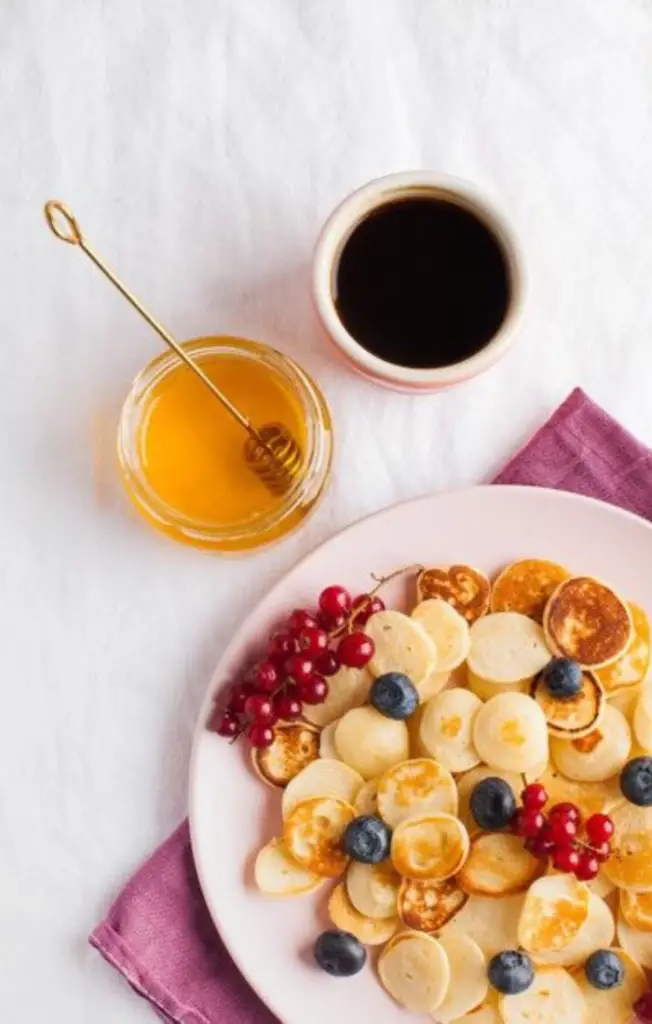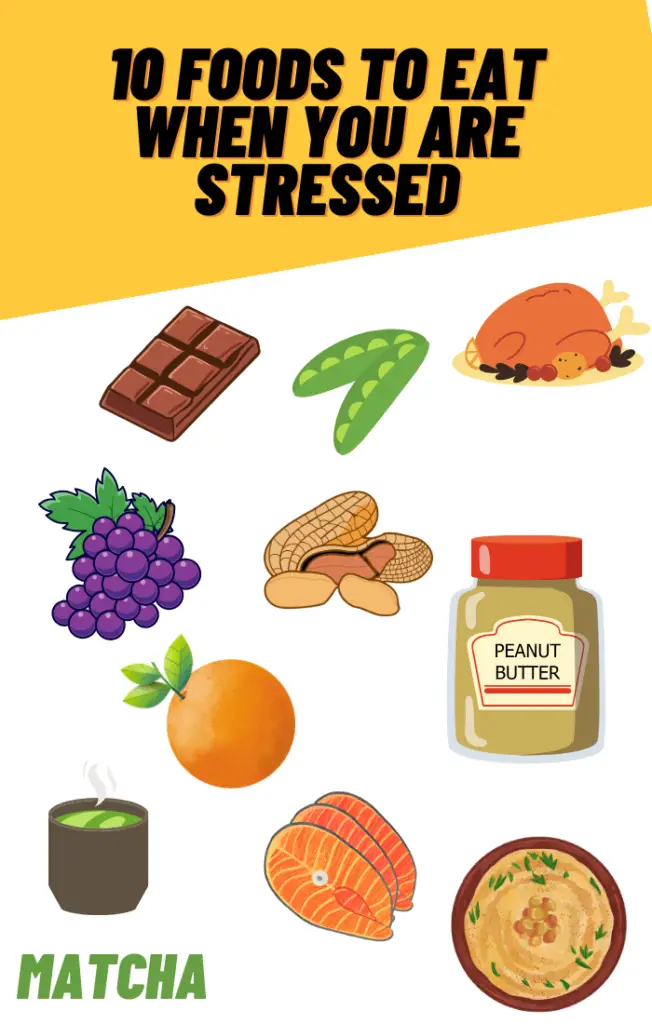In our fast and modern today’s life, everyone is busy with different tasks, totally forgetting their health. Many people are facing stress, anxiety and depression. So, in this stressful world, it is essential to find effective ways to reduce stress. Stress can be reduced with different exercises and medicines but there are some foods that reduce stress without any meditation and exercises.
In this article, we’ll learn about foods that reduce stress naturally, we’ll also delve into how hydration helps in reducing stress and some home remedies to control stress levels. By just making small changes in our daily life routine and meals, we can be able to overcome stress and enjoy a peaceful life.
Understanding Stress-Eating
Stress-eating is the practice of consuming food as a response to stress or emotional triggers. While it can provide temporary relief, it often involves overindulging in unhealthy, comfort foods. Understanding the difference between healthy stress-eating and emotional overeating is vital in managing stress through dietary choices. In this article, we will explore how stress-eating can be a natural and effective stress management tool when approached mindfully and with the right food choices. Stress-eating means eating food that reduces stress naturally without any medicines or activities.
Nutrient-Rich Stress-Busting Foods
Nutrient-rich stress-busting foods are helpful in reducing stress through diet. These foods are packed with nutrients to reduce mental and physical stress. They are not just to satisfy your hunger but these foods really help you to reduce stress.
These foods are characterized by their high content of stress-fighting nutrients, including:
1. Antioxidants: Antioxidants have compounds that can fight the oxidants that produce stress. Berries, dark chocolate, and green tea are rich sources of antioxidants.
2. Vitamins: Certain vitamins, such as vitamin C, are known to reduce stress. Citrus fruits, bell peppers, and leafy greens are excellent vitamin C providers.
3. Minerals: Minerals like magnesium play a crucial role in muscle relaxation, which is integral for stress relief. Foods like spinach, nuts, and whole grains are magnesium-rich options.
4. Complex Carbohydrates: Complex carbohydrates can stabilize blood sugar levels in the body and result in a good mood. They are found in whole grains and legumes which are making them beneficial in stress management.
5. Omega-3 Fatty Acids: Omega-3s, help reduce inflammation and counteract the negative effects of stress. They are found in fatty fish and flaxseeds,
6. Serotonin Boosters: Foods that promote serotonin production, such as dark chocolate and bananas, contribute to a sense of well-being and relaxation.

The Power of Complex Carbohydrates
The gaining of complex carbohydrates in one’s diet can help in reducing stress levels. These foods, such as whole grains and legumes, stabilize blood sugar levels and positively impact one’s mood. In contrast to their simple carbohydrate counterparts found in sugary snacks, complex carbohydrates release energy gradually, thereby preventing sudden spikes and crashes that can adversely affect one’s emotional state. This gradual energy release stimulates the production of serotonin, a neurotransmitter associated with feelings of well-being. By maintaining steady levels of serotonin, individuals are more likely to experience a sense of tranquility and satisfaction, rendering complex carbohydrates a valuable dietary addition for stress reduction.
Serotonin-Boosting Foods that Reduce Stress
Serotonin-boosting foods can also help in reducing mental and physical stress. Serotonin helps us in different ways, including influencing learning, memory, and happiness as well as regulating body temperature, sleep, sexual behavior, and hunger. Thus, serotonin-boosting food can help in reducing stress. Serotonin-boosting foods that reduce stress are:
Fruits and Vegetables:
Fruits and vegetables are rich in essential nutrients, including vitamins and minerals that support serotonin production. Incorporating a colorful array of these into your diet can have a positive impact on your mood.
Lean Proteins:
Lean proteins, such as chicken, turkey, and tofu, are excellent sources of tryptophan—an amino acid that contributes to serotonin production.
Whole Grains:
Whole grains like oats, brown rice, and quinoa provide complex carbohydrates that help in the absorption of tryptophan, further boosting serotonin levels.
Healthy Fats:
Healthy fats found in avocados, nuts, and olive oil promote overall brain health, indirectly contributing to serotonin synthesis.
Dark Chocolate:
Dark chocolate contains compounds that can boost serotonin levels while satisfying your sweet tooth.
Antioxidant-Packed Superfoods
In the journey to reduce stress, another gift is antioxidant-packed superfoods. These foods are rich in compounds that can fight oxidative stress and help us out of stress and physical tiredness.
Certainly! Here is a list of some antioxidant-packed superfoods that can help promote overall health and reduce stress:
Berries: Blueberries, strawberries, raspberries, and blackberries are rich in antioxidants, particularly anthocyanins, which can help combat oxidative stress.
Leafy Greens: Spinach, kale, and Swiss chard are loaded with vitamins, minerals, and antioxidants like lutein and zeaxanthin.
Dark Chocolate: High-quality dark chocolate contains flavonoids, which have antioxidant properties. Enjoy it in moderation.
Nuts and Seeds: Almonds, walnuts, flaxseeds, and chia seeds are excellent sources of antioxidants, healthy fats, and fiber.
Turmeric: This vibrant spice contains curcumin, a powerful antioxidant and anti-inflammatory compound.
Green Tea: Green tea is rich in catechins, which are antioxidants that can help reduce stress and improve overall health.
Colorful Peppers: Bell peppers, especially red, yellow, and orange ones, are packed with vitamin C and other antioxidants.
Tomatoes: Tomatoes contain lycopene, a potent antioxidant that may help reduce the risk of chronic diseases.
Broccoli: This cruciferous vegetable is high in antioxidants like sulforaphane, known for its health benefits.
Citrus Fruits: Oranges, grapefruits, lemons, and limes are rich in vitamin C, a powerful antioxidant.
Incorporating these foods into your diet can be a delicious and nutritious way to combat stress and promote a calmer, more balanced state of mind.

The Importance of Hydration
Staying hydrated is an important step in the journey to reduce stress levels. Though, it does not seem an obvious solution but stress and hydration have a profound and worthy connection.
Cognitive Function: When you are dehydrated, your ability to think clearly and concentrate can be hindered, which can cause additional stress, especially in situations that require mental focus.
Mood Regulation: Proper hydration is important for regulating mood. If you become dehydrated, you may experience irritability, anxiety, and even depression. On the other hand, staying adequately hydrated can help ensure a balanced and positive mood.
Physical Stress: When the body is dehydrated, physical stress on the body system occurs which leads to physical problems.
Reducing Stress Response: Keeping the body hydrated reduces stress response physically and mentally. When you’re hydrated, your body can better deal with stress responses and effects.
Better Sleep: Dehydration leads to lack of sleep and lack of sleep results in stress. Adequate hydration can help in effective and peaceful sleep.
Herbal Remedies for Stress
Reducing stress is a very hard process but some homemade herbal remedies can help in relaxing your mind and body. Herbals are soothing materials that can help you to relax. Some herbal remedies that reduce stress are:
Ashwagandha: Ashwagandha is an adaptogenic herb that has been used in Ayurvedic medicine for centuries. It may help the body adapt to stress and promote a sense of calm.
Chamomile: Chamomile tea is well-known for its soothing properties. It contains compounds that can help relax the mind and body, making it an excellent choice for reducing stress.
Lavender: Lavender is famous for its calming and aromatic properties. Whether in the form of essential oil, tea, or sachets, it can help reduce anxiety and stress.
Passionflower: Passionflower is known for its sedative and anxiety-reducing effects. It can be consumed in various forms, such as teas or supplements.
Lemon Balm: Lemon balm has a mild sedative effect and is often used to alleviate stress, anxiety, and sleep disturbances.
Holy Basil (Tulsi): Holy basil is considered an adaptogen that can help the body adapt to stress and maintain balance. It’s often consumed as a tea.
Meal Planning for Stress Reduction
To manage stress, what you eat can have a big impact on promoting calmness and well-being. When it comes to meal planning for stress reduction, focus on selecting foods that support mood stability and provide essential nutrients. Here’s a guide to help you plan meals that can help reduce stress:
- Start to take a balanced diet which includes all foods from different categories, and supplements, and also do different exercises.
- Eat a variety of colorful fruits and vegetables that are packed with antioxidants to combat stress-related health issues
- Nuts and seeds like almonds, pistachios, and sunflower seeds, which are high in magnesium, can help relax your brain and muscles.
- Support gut health by incorporating probiotic-rich foods like yogurt, kefir, and sauerkraut.
- Add herbs and spices like turmeric, ginger, and cinnamon to your meals to reduce stress by home remedies.
- Replace sugary drinks with green tea.
- Stay well-hydrated to prevent mental and physical stress.
- Practice eating by focusing on what you’re eating rather than talking or thinking about another thing.
- Limit caffeine and sugary foods, as they can affect mood and energy levels.
- Schedule regular meal time and take your meals on time without regarding mood swings.
- Avoid unhealthy, fast foods in stress-reducing journeys.
- Sometimes eating small portions of food after a short time throughout the day can help reduce stress and relax your mind.
Remember, everyone’s preferences and dietary restrictions are different, so it’s important to personalize your meal plan. Consulting with a healthcare professional or registered dietitian can provide further guidance in creating a meal plan that suits your needs and supports stress reduction.
Conclusion
In the fast-paced nature of contemporary society, it is imperative to discover effective methods to combat stress in order to maintain our overall well-being. The correlation between our dietary habits and stress levels is a significant one, as explored in the article titled “Eat Your Way to Less Stress: Foods that Reduce Stress Naturally.”
This article delves into the significance of mindful stress-eating, the consumption of nutrient-rich foods that alleviate stress, the inclusion of complex carbohydrates in our diet, the incorporation of serotonin-boosting foods, the consumption of antioxidant-packed superfoods, the importance of hydration, the utilization of herbal remedies, and the art of meal planning. By integrating these components into our daily routines, we possess the potential to naturally reduce stress and lead a healthier and more contented life. Stress management is a comprehensive journey, and our dietary choices play a pivotal role in attaining a sense of equilibrium. Therefore, take a step towards a more serene and stress-free existence by making deliberate and nourishing choices in your diet today.



